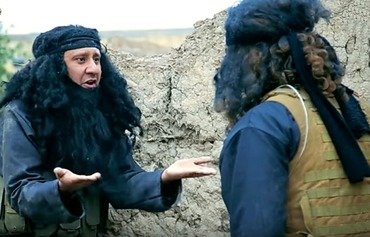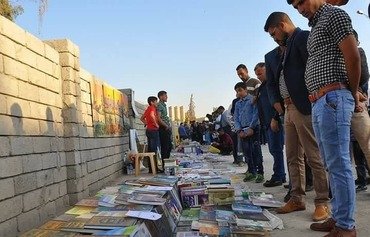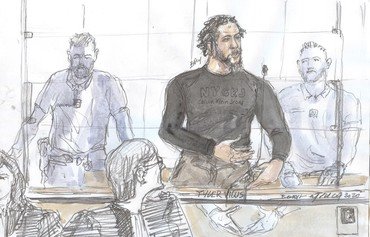Iraqi comedy show 'Wilayat Batikh' (Melon City) has millions of Iraqis laughing at its satirical take on social ills that run the gamut from political corruption to terrorism.
The weekly show, broadcast on Hona Baghdad satellite channel, has attracted millions of viewers and thousands of likes and comments on social media.
Each episode presents a satirical sketch featuring characters that include corrupt police officers, ungrateful sons, nosy neighbours and alcoholic terrorists.
A sketch on celebratory gunfire was viewed four million times on YouTube, while another, in which three "Islamic State of Iraq and the Levant" (ISIL) elements mourn a dead commander, drew more than 1.4 million views in two weeks.
The ISIL sketch and others like it, which show the state of moral decay within the group and how some elements are addicted to alcohol and drugs, have sparked the group's ire.
Wilayat Batikh presenter Ali Fadhil told Diyaruna that a young man from Mosul was publicly flogged by ISIL's al-hesba ("religious police") after the group caught him watching the show.
He said he has learned that Mosul residents secretly watch episodes of the show on their smart phones.
Fresh and innovative approach
The show's nationwide success -- even in cities under ISIL control -- can be attributed to two years of careful research before its launch, Fadhil said.
"The 16 strong crew, of whom nine are actors, are mainly young amateurs, which was an important reason for the success of the programme," he said.
The team took a fresh and innovate approach to its work, he said, creating a new form of comedy without resorting to copying comedic sketches off the Internet, as others have done.
At the same time, he said, their sketches do not cross moral and traditional boundaries, but rather present truths that everyone can relate to.
In one sketch, he said, a female MP eats sweets and plays with her mobile phone during a parliamentary corruption hearing, not realising she is on camera.
"That scene and the humorous comments do not target the person of the MP, but rather the carelessness of politicians in general," he said.
Wilayat Batikh actor Atheer Kashkoul said the high number of views is because people can relate to the show's simplicity and spontaneity, which presents wrong behaviour in a comedic yet constructive light, without any sort of vulgarity.
"Our programme is produced for Iraqi families and no one watches the show without noticing characters they could identify within society," he told Diyaruna.
Threats and acts of violence
The show’s creators received several threats from unknown sources after episodes targeting the shortcoming of politicians and the violence of terror groups were aired, Fadhil said.
They have grown accustomed to such threats, he said, adding that they have lost their effect.
Fadhil’s own house, near al-Saadoun park in central Baghdad, was targeted when tribal gunmen opened fire on February 21st in response to a sketch they considered to be an insult to their clan.
At the time, police sources revealed that Fadhil’s family members were terrified but were only left with material damage to their house.
"That incident was resolved legally with the clan in question without having to compromise," Fadhil said, stressing that attempts to blackmail artists will be futile.
Iraqi MP Mohammed al-Sayhud stressed that Iraqi tribes do not condone the targeting of journalists and media figures, noting that this crime was carried out by tribesmen acting individually.
"The attack on the presenter of Wilayat Batikh, as well as the targeting of security officials and journalists is unacceptable," he told Diyaruna.

!['Wilayat Batikh' cast members pose for a photograph. The popular Iraqi comedy show uses satire to target terror groups and public corruption. [Photo courtesy of Wilayat Batikh]](/cnmi_di/images/2017/04/21/7704-Iraq-comedy-show-600_384.jpg)






